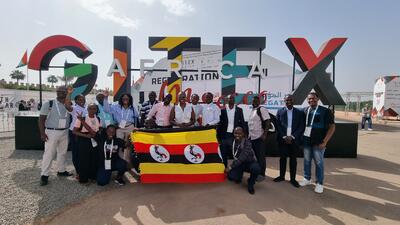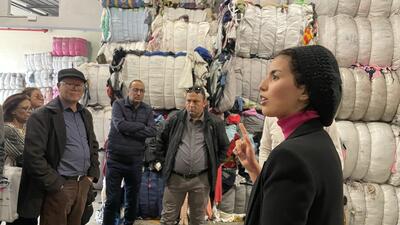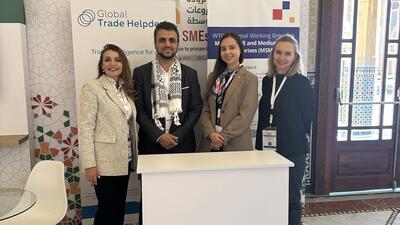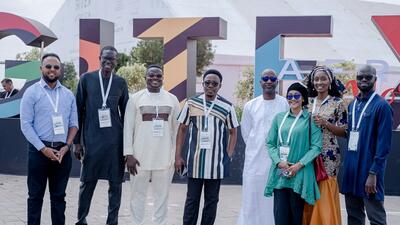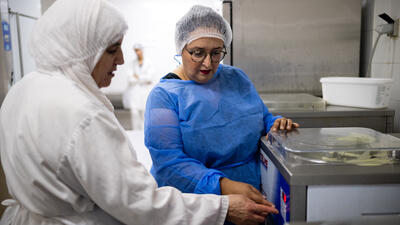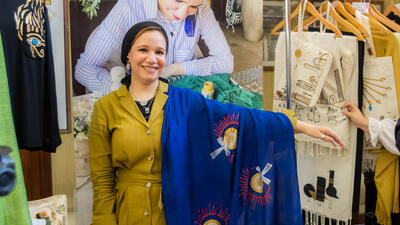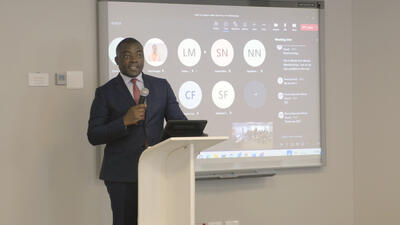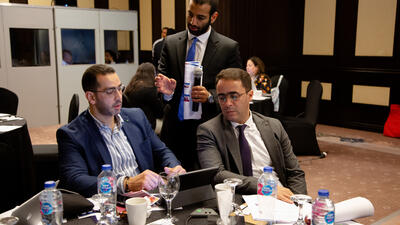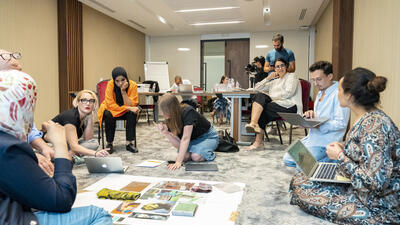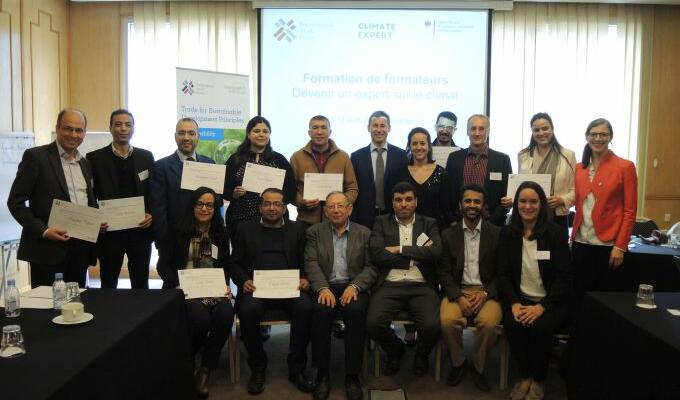
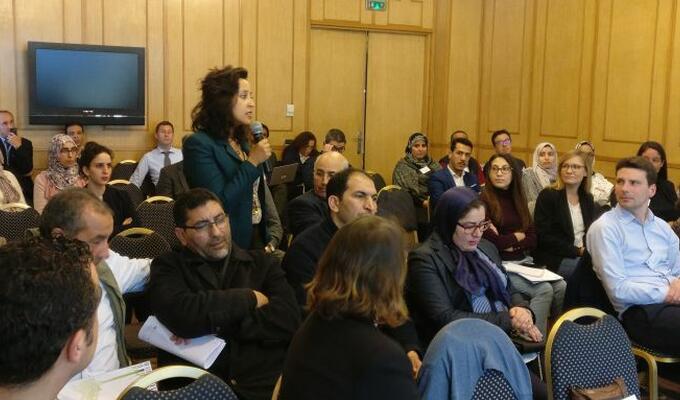
ITC partners with leading European brands to strengthen climate resilience in the Moroccan textile sector
The International Trade Centre (ITC) has partnered with ICS, which is representing a number of European textile retailers, to strengthen competitiveness and climate resilience in the Moroccan textile value chain. The launch of the project will coincide with three days of meetings and training in Casablanca, Morocco, on 10-12 April, that will bring together representatives from the Moroccan, French, German and Spanish textile sectors.
Adapting to climate change is a serious challenge for governments, businesses and communities. Micro, small and medium-sized enterprises (MSMEs), particularly in developing countries, see their operations facing increasing volatility due to climate change related impacts such as increased prices for raw materials, energy and water, and but also degraded transport routes and processing facilities as a result of heavy rainfalls or drought.
In addition to the Moroccan textile sector, the ‘Strengthening Competitiveness through Climate Resilience in International Value Chains’ project will focus on the Kenyan agri-food sector. The interventions are aimed at improving the risk management of Moroccan textile suppliers, and Kenyan coffee and tea suppliers, supporting companies to integrate climate-change considerations in their risk analysis and helping them to create climate adaptation plans.
Implemented by ITC’s Trade for Sustainable Development (T4SD) Programme, the project is financed by the German Federal Ministry for Economic Cooperation and Development (BMZ).
‘Increasing the climate resilience of MSMEs is an investment in their competitiveness,’ said ITC Executive Director Arancha González. ‘By strengthening the ability of the companies to adapt to climate change at key points throughout the value chain, we aim to turn challenges into opportunities and help them to better navigate this complex area of adaptation.’
The ‘Strengthening Competitiveness through Climate Resilience in International Value Chains’ project will provide tailored technical assistance to participating companies and build on the Climate Expert Approach, developed and piloted by the GIZ Global Program on Private Sector Adaptation to Climate Chance (PSACC). This includes a practical four-step approach that helps companies analyse climate change risks and opportunities and generate climate adaptation strategies, communicate them, and identify the appropriate technologies, finance, and services needed to implement them.
Crucial to the project is the participation of European companies that will take an active role in the project.
These buyers have identified participating suppliers, participated in sensitization workshops and will take part in a selection of customized coaching sessions together with their respective suppliers. As climate change affects all stakeholders along the supply chain, partnership between suppliers and buyers is important in formulating effective and multidimensional responses.
Building climate resilience in the Moroccan textile value chain
During the Casablanca workshop, a training-of-trainers session on climate change adaptation for MSMEs will be organized on 10 and 11 April. On 12 April, Moroccan textile MSMEs and European buyers will explore how to mitigate climate risk with the aim of initiating joint actions and establishing climate resilient value chains.
In the coming months, the project will work with MSMEs in Kenya and Morocco to develop climate-change adaptation strategies. The participants will be exposed to a blended learning approach consisting of customized advisory services for MSMEs and online leaning modules. This includes online learning through the ‘Becoming a Climate Expert’ course that will be available on the ITC SME Trade Academy and which features contributions from organizations such as United Nations Framework Convention on Climate Change (UNFCCC); and Sustainability Map, ITC’s online toolkit on voluntary sustainability standards (VSS).
Notes for the Editor:
Companies participating through the partnership with ICS include Camaïeu, Carrefour, Damartex, IDKids, La Halle and Naf Naf of the Vivarte group, La Redoute, Monoprix, Orsay and Promod.
The International Trade Centre is the joint agency of the World Trade Organization and the United Nations. ITC assists micro, small and medium-sized enterprises to become more competitive in global markets, thus contributing to sustainable economic development as part of the Sustainable Development Goals.
For more information, visit www.intracen.org Follow ITC on Twitter | Facebook |LinkedIn |Instagram
ICS member brands and retailers have been working together since its creation to sustainably improve conditions for people at work, and responsibly support their supplying factories to implement progress and compliance in the production sites around the world. ICS enables its member companies to collaborate with common tools, to mutualize audits and to contribute to the reduction of the ‘audit fatigue’.
For more information, visit www.ics-asso.org




